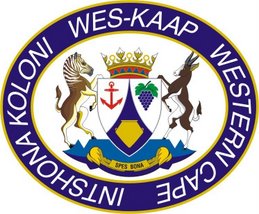Last night, Tasneem Essop, the Western Cape MEC for Environment, Planning and Economic Development, announced that the provincial Energy Risk Management Committee (ERMC), which was started by Premier Ebrahim Rasool in 2006, had been re-activated after a broad range of stakeholders agreed that the province needed a predictable and reliable management and information plan to help citizens prepare for electricity load shedding and that a demand side management programme was crucial to ensuring electricity savings in the province.
Essop said that it was clear from the Eskom briefing to the ERMC, that the energy situation was very different to the previous situation two years ago as it had now become a national issue and was no longer a localised Western Cape problem. She said that regardless of these new conditions, the Western Cape would have to contribute to helping find solutions to the problem and again ensure electricity savings as we successfully did two years ago.
‘The discussion last night was robust and our critical stakeholders expressed very strong opinions about the load shedding but I was deeply impressed by their renewed commitment to see the ERMC up and running again, their very strong spirit of consensus and a belief in our provincial model. The ERMC is a focused leadership collective of which we should all be very proud!’ said Essop.
The ERMC has mandated its sub-committee, the Provincial Monitoring Team (PMT), to work with Eskom provincial management and the City of Cape Town to devise integrated load shedding timetables, a demand-side management plan and a communication plan which will be tabled for comment by the various stakeholders at their next meeting in the first week of February.
The Renewable Energy Task Team, consisting of officials from the Department of Environmental Affairs and Development Planning (DEADP), the City of Cape Town, Eskom and civil society was also tasked with preparing a report aimed at incorporating the provision of renewable energy sources, as part of the overall strategy to deal with medium to long term problems which would result from increasing demand outstripping supply.
Essop said that her department had made significant progress in developing a renewable energy plan for the province and that the challenge now was to make sure ‘that renewable energy products, such as solar water heaters, move out of a business plan phase and into our homes and factories as not only are they are very effective demand-side management tools but they also create exciting new investment opportunities.’
She said that the most important task of the ERMC was to devise a strong communication plan which would help citizens of the Western Cape access reliable and predictable information on load shedding and practical ways of saving electricity.
‘If we are expected to pull together and work through these difficult times then we must at least help our citizens get an honest and clear picture of what is required and how every individual can contribute to energy savings.’
Two organisations from labour and civil society said that they would need to consult amongst their membership and hoped to return with a mandate to participate at the next meeting in February.
Ends
Issued by:
Minister Tasneem Essop
Environment, Planning and Economic Development
For further information contact:
Nils Flaatten
Ministerial Spokesperson
Ministry of Environment, Planning and Economic Development
083 708 7119
Ikhaya Lethu Sonke – A Home for All – ‘n Tuiste vir Almal
Subscribe to:
Post Comments (Atom)



No comments:
Post a Comment